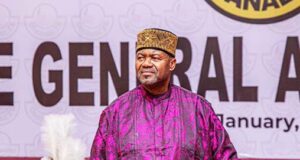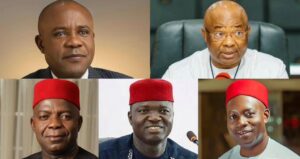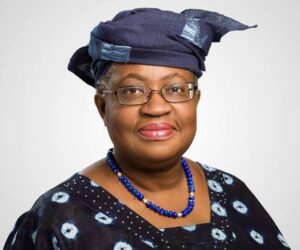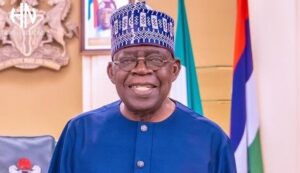By G. Fraser. MFR. The National Patriots
HeadlineNews.News Johannesburg, August 2025
A Strange “Government in Exile” Emerges
South African authorities recently confirmed that a group of Nigerians, styling themselves as a self-declared government in exile, attempted to appoint former President Goodluck Jonathan as their symbolic leader. All members have since been rounded up for deportation to Nigeria, in a move that has embarrassed Nigerians at home and abroad.
This is not the first time such bizarre spectacles have played out. From Ghana in the 1980s, where groups of Nigerians faced expulsions after being accused of disregard for host-country norms, to this latest South African incident, the problem of groups acting outside the bounds of both law and diplomacy continues to stain Nigeria’s global image.

Historical Context: Echoes of Disunity Abroad
-
Ghana (1969 & 1983): Thousands of Nigerians, mostly traders, were expelled under the Aliens Compliance Order and later the “Ghana Must Go” episode. Accusations included lawlessness and disregard for host-country regulations.
-
South Africa (2008–2019): Nigerians have repeatedly been at the centre of xenophobic flashpoints, with allegations of crime networks feeding resentment.
-
Diaspora Radicalism: Across Europe, Asia, and North America, diaspora groups have sometimes attempted to recreate Nigeria’s bitter ethnic divides abroad—whether through separatist agitation or self-styled “governments in exile.”
The Ethnic Dimension: Frustration and Fallout
While the recent South Africa incident is tied to individuals of Igbo origin, the broader truth is that ethnic discontent in Nigeria remains unresolved at home. Groups frustrated by governance failures, exclusion, or the weight of history often seek expression outside the borders.
However, by staging reckless acts abroad—such as appointing shadow presidents—they not only embarrass Nigeria internationally but also expose their host communities to unnecessary tensions.
 A South African commentator remarked:
A South African commentator remarked:
“We welcome Nigerians as workers and investors, but not as people who want to form their own state inside our country. That is unacceptable.”
Comparative Analysis: How Other Nations Handle This
-
Spain & Catalonia: Catalan separatist leaders tried to run a government in exile from Belgium after 2017’s independence bid. Spain pursued them legally but also opened channels for dialogue.
-
Kurds in the Middle East: Kurdish separatists have formed diaspora networks in Europe, but their activities often complicate bilateral relations.
Nigeria’s Lesson: Heavy-handed suppression without dialogue often radicalises groups further. Structured reconciliation can defuse tensions before they explode abroad.

The Real Issue: National Reconciliation Is Overdue
The South Africa incident is a symptom, not the disease. Nigeria has never fully addressed the legacies of:
-
The Biafran War (1967–1970), which left deep scars still felt in the southeast.

-
Ethnic mistrust that resurfaces every election cycle.
-
Economic exclusion, with youth unemployment driving restiveness and migration.
The solution is not repeated crackdowns alone. It is a National Reconciliation and Dialogue where all ethnic groups—Yoruba, Igbo, Hausa-Fulani, Ijaw, Tiv, Kanuri, and others—sit together to redefine federalism, power sharing, and belonging in a modern Nigeria.
Why Dialogue Matters Now
-
Reputation: Nigeria cannot afford repeated international embarrassments that undermine its credibility.
-
Unity vs Separation: If certain groups insist on self-determination, the Nigerian state must either negotiate peacefully or risk endless instability.
-
Global Perception: Nigeria’s diaspora already faces stereotypes of lawlessness. Further incidents like the “South Africa shadow government” only worsen the perception index.
A Yoruba opinion leader put it plainly:
“The land of Nigeria belongs to all its children, but no child should turn our family quarrel into a global spectacle. It is time we sat at the round table, honestly, or let each go his way in peace.”
Conclusion: Time to Choose
Nigeria’s strength has always been its diversity. But when diversity turns into disorder—at home or abroad—the result is ridicule, sanctions, and lost opportunities.
The South Africa saga should be a wake-up call:
-
For ethnic groups, to pursue grievances lawfully and patriotically.
-
For government, to stop ignoring calls for inclusive dialogue.
-
For all Nigerians, to protect the nation’s global reputation by resolving our disputes at home, not in foreign lands.

The time for a National Reconciliation Conference is now. Every delay simply risks another headline of embarrassment.
Dr. G. Fraser. MFR
The National Patriots
Headlinenews.news Special Investigative Report








